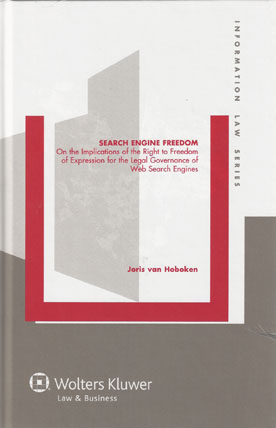
In this book, the author explores how search media can be incorporated into freedom of expression doctrine, as well as media and communications law and policy more generally.
And the book develops a theory of the legal relations between national governments and search media providers on the one hand and between end-users and information providers on the other. Among the many issues covered are the following:
The author concludes with recommendations regarding search engine governance and the proper role of government, indicating which existing elements of the regulatory framework for search media can be improved and offering directions for future legal and empirical research.
Considering the ever-growing cultural, political, and economic importance of the Internet and the World Wide Web in our societies, and the societal interests involved in the availability of effective search tools, this first in-depth legal analysis of search engine freedom will prove indispensable to the many practitioners and policymakers concerned with freedom of expression in the digital age.